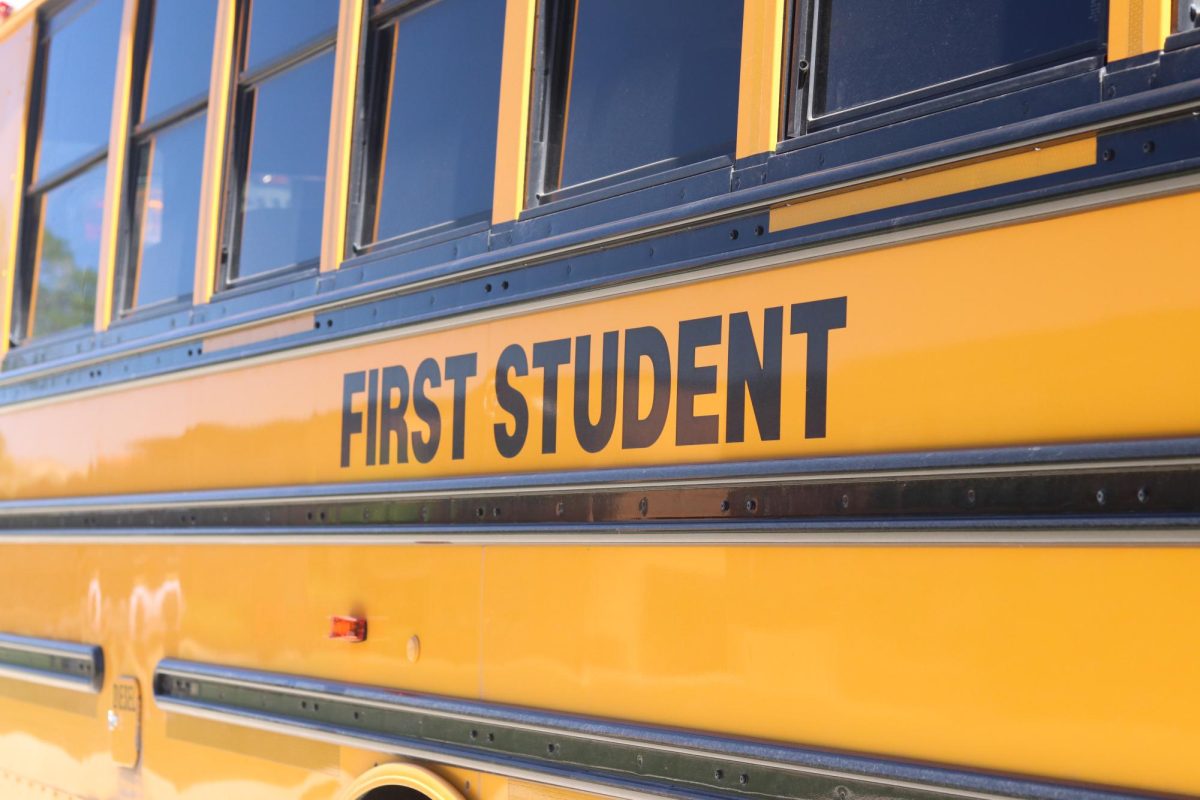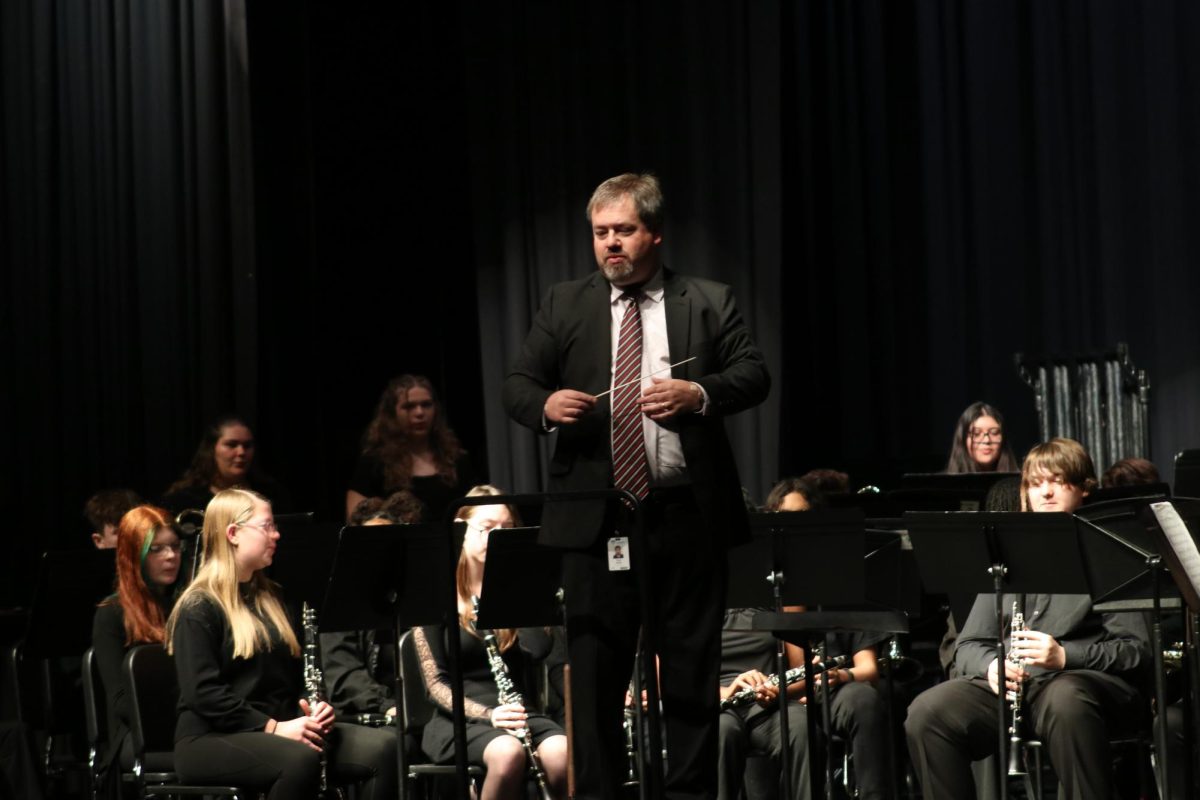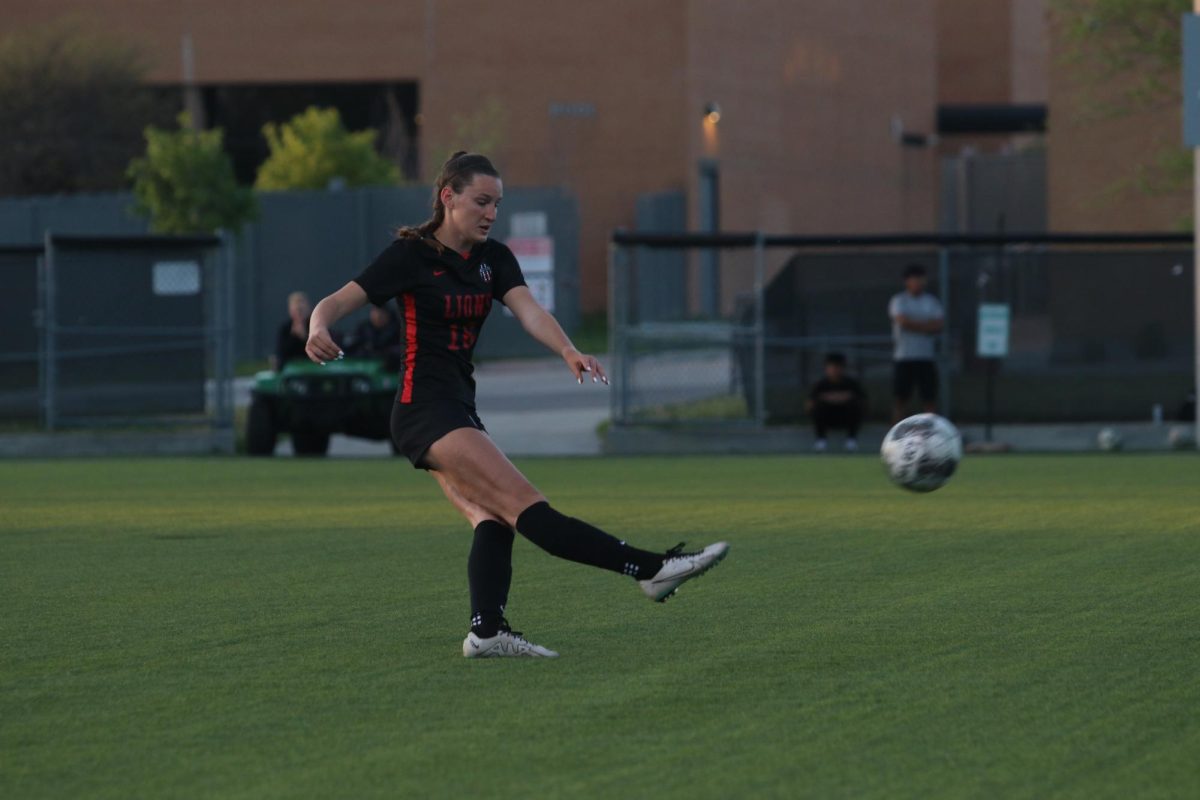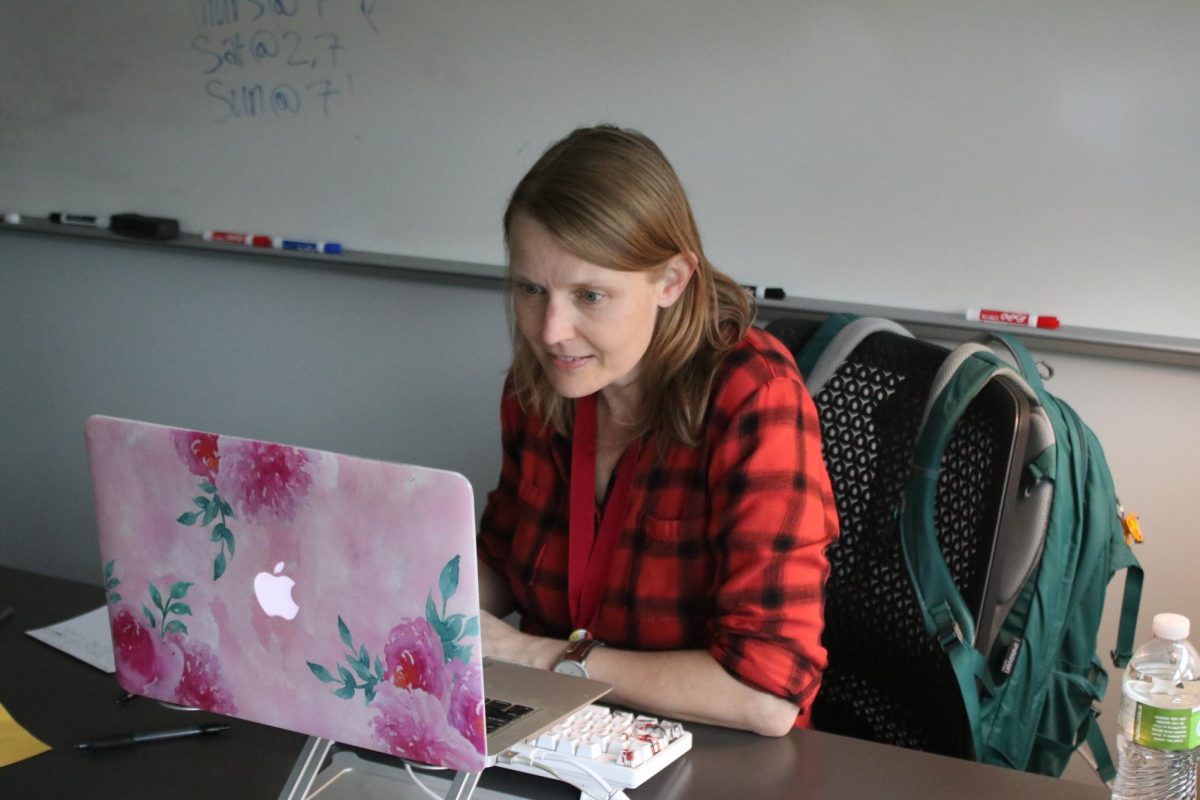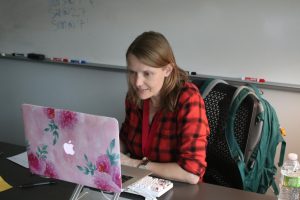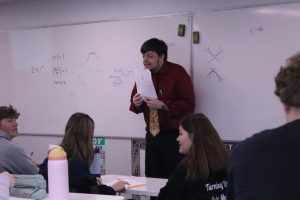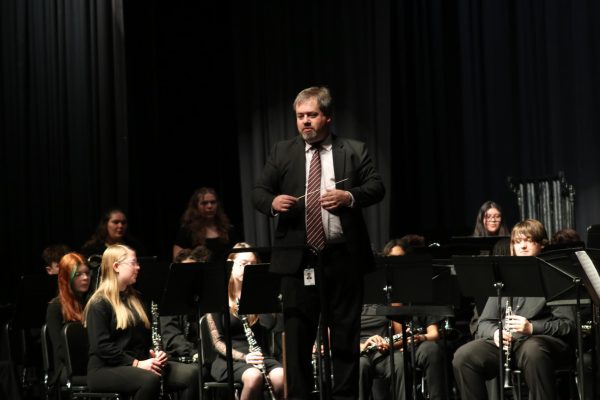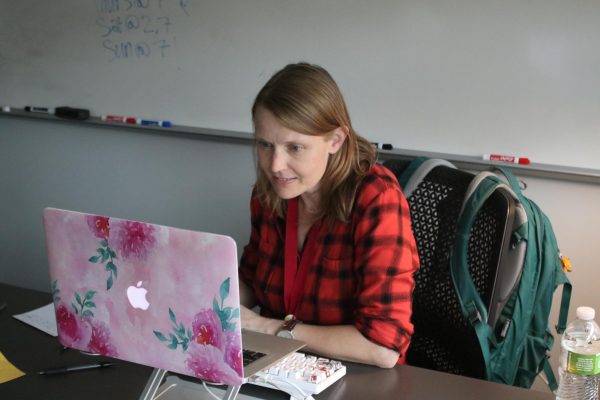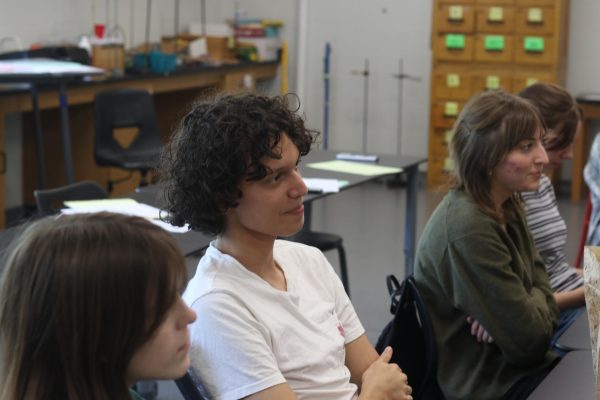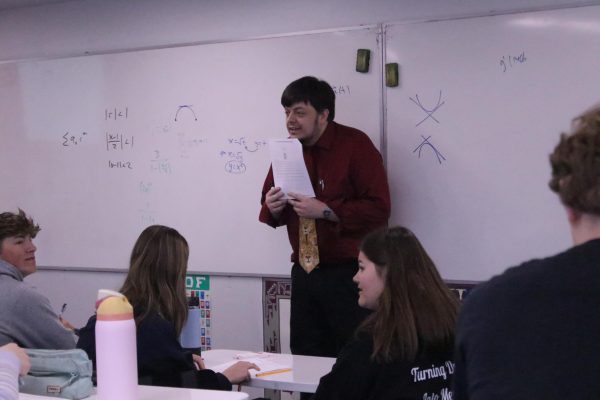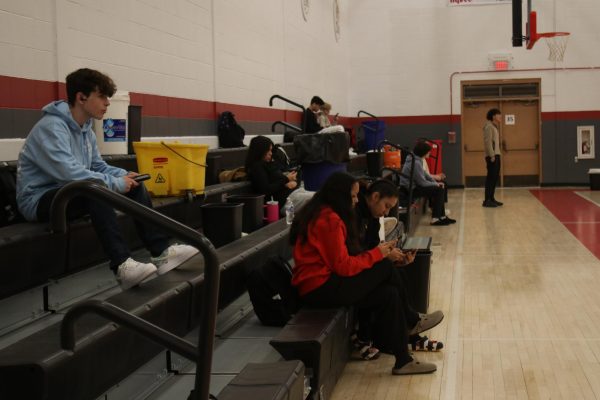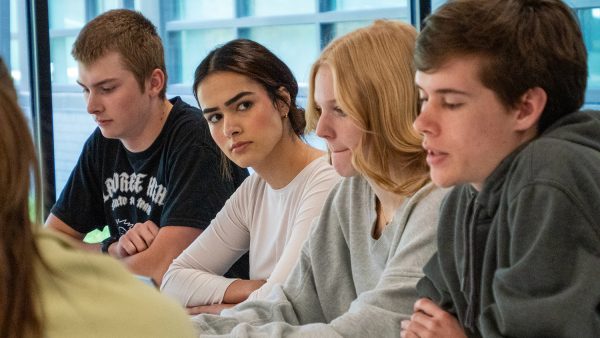Fewer textbooks affect classrooms
Switch to online books leaves many teachers, students without adequate number of texts
December 10, 2015
Increasingly this year, students and teachers have put in extra work to make up for fewer printed textbooks in their classes.
Students first experienced the change last year with some AP Biology textbooks being replaced with online-only texts. This year, students found that other classes — from math to social studies — had moved to a similar mix of online and print texts. That means that while some students still have access to print textbooks, there aren’t enough for each student to have a physical copy, and some students aren’t ready or able to access online texts from home.
“It set me behind because I didn’t have a system, and I didn’t have the book to look off of,” senior Betsy Smoot said about her AP Biology class last year. “I felt kind of like I was going in blind.”
Despite efforts teachers and administrators have put into fixing issues that come with the lack of available print textbooks, students have still felt strained. Though students have been presented with many options, not all have been readily available.
“I have no problem with online textbooks, but I would rather the students had the choice of online access, a physical textbook or a district-issued device,” math teacher Pamela Fangohr said. “We need to be equitable for all.”
Students have the opportunity to check out laptops and Wifi hotspots from the school library to access the online books from home. However this option has had some limitations. Only 25 laptops and 10 hotspots are available for checkout, and the hotspots provide a limited amount of data usage.
“So you have people that go to LHS that live way out in the country with no internet signal,” said Hunter Mooney a sophomore in Algebra 1. “So they can’t really do it [access the online textbook].”
Teachers have been resourceful in providing for their students, making photocopies from their notes and books in place of textbooks. Even so, senior Matt Ramaley, who’s in AP Biology and College Algebra, said such efforts don’t allow students to easily look ahead or look back.
“It would have been substantially easier to navigate through the class had we had a full textbook, not just a photocopy of pieces of it,” he said.
Many classes affected by the shortage had a two-to-one student textbook ratio, forcing students to share the print books.
“It’s unfair because other people have to use that textbook as well, and if I have mine always checked out, then what are the other people going to use?” Mooney said.
Other students said they’re not ready for the change to so many online books.
“It makes me feel good that I’m graduating before they do that because personally I love the tangible textbooks,” Ramaley said. “I’ve tried different online textbooks, and they’re really just not the same for me, and I think a lot of my friends could agree with me on that.”
Despite the troubles, the district has been working to accommodate everyone while transitioning into the new era.
“Continuing conversation with students and staff to hear the barriers and discuss possible solutions will help strengthen our students’ experiences with instructional resources,” assistant superintendent Jerri Kemble said.
Kemble supported many positive aspects of providing both digital and hardcopy textbooks including students not having to carry as many textbooks, the opportunities that online textbooks bring such as videos and extra resources not offered in hardcopy, and the ability to update information quicker.
“Teachers can customize some digital textbooks by adding in quizzes or assignments or relevant local information,” Kemble said. “Digital textbooks can bring concepts to life in ways a paper textbook can not.”
The district is also providing teachers the opportunity to learn how to efficiently use the online resources, including through workshops.
These new opportunities to educate students bring possibilities, but will take time and thorough work to implement.
“I think this is just a difficult transitional period were going through,” Smoot said.



